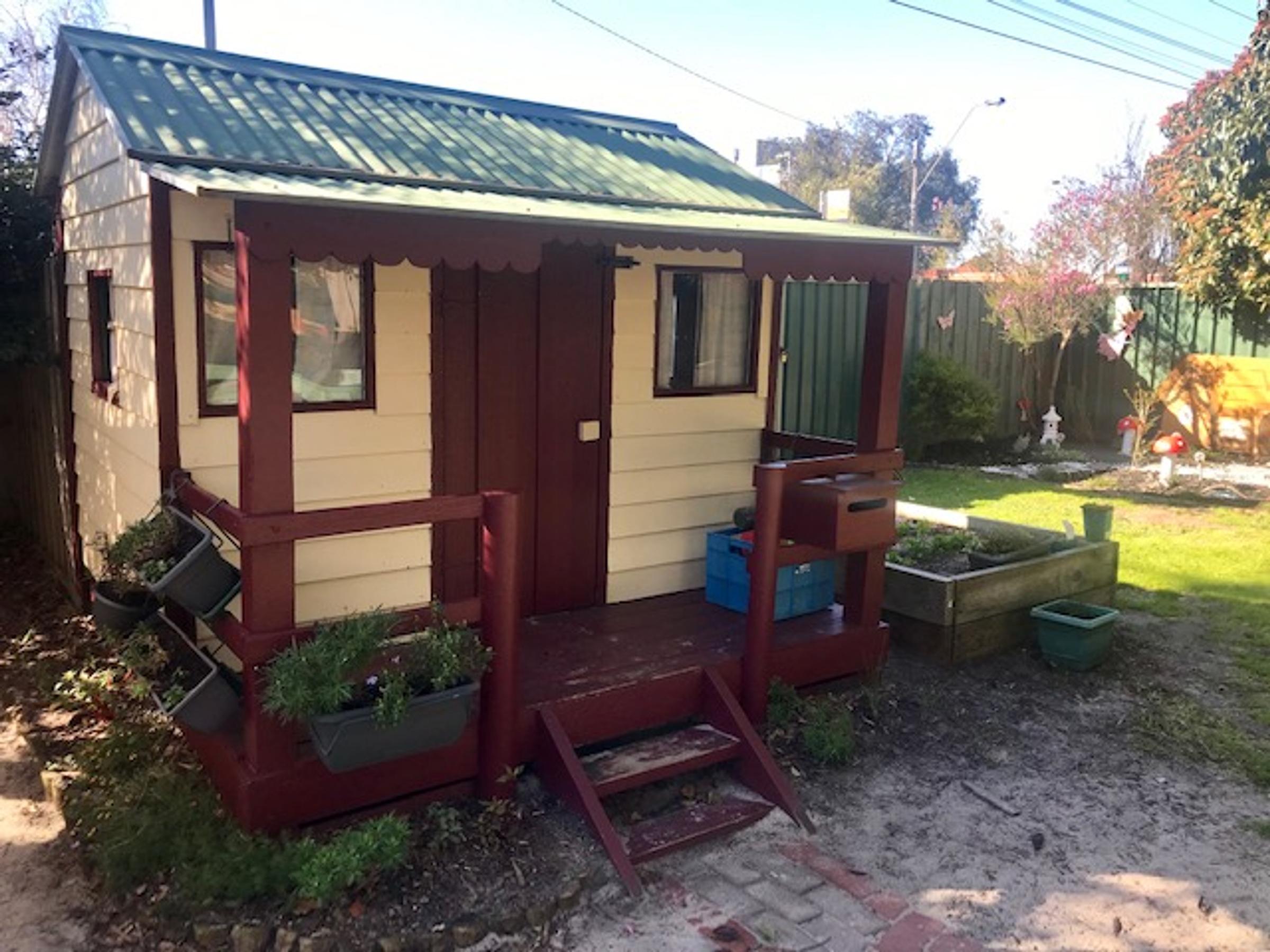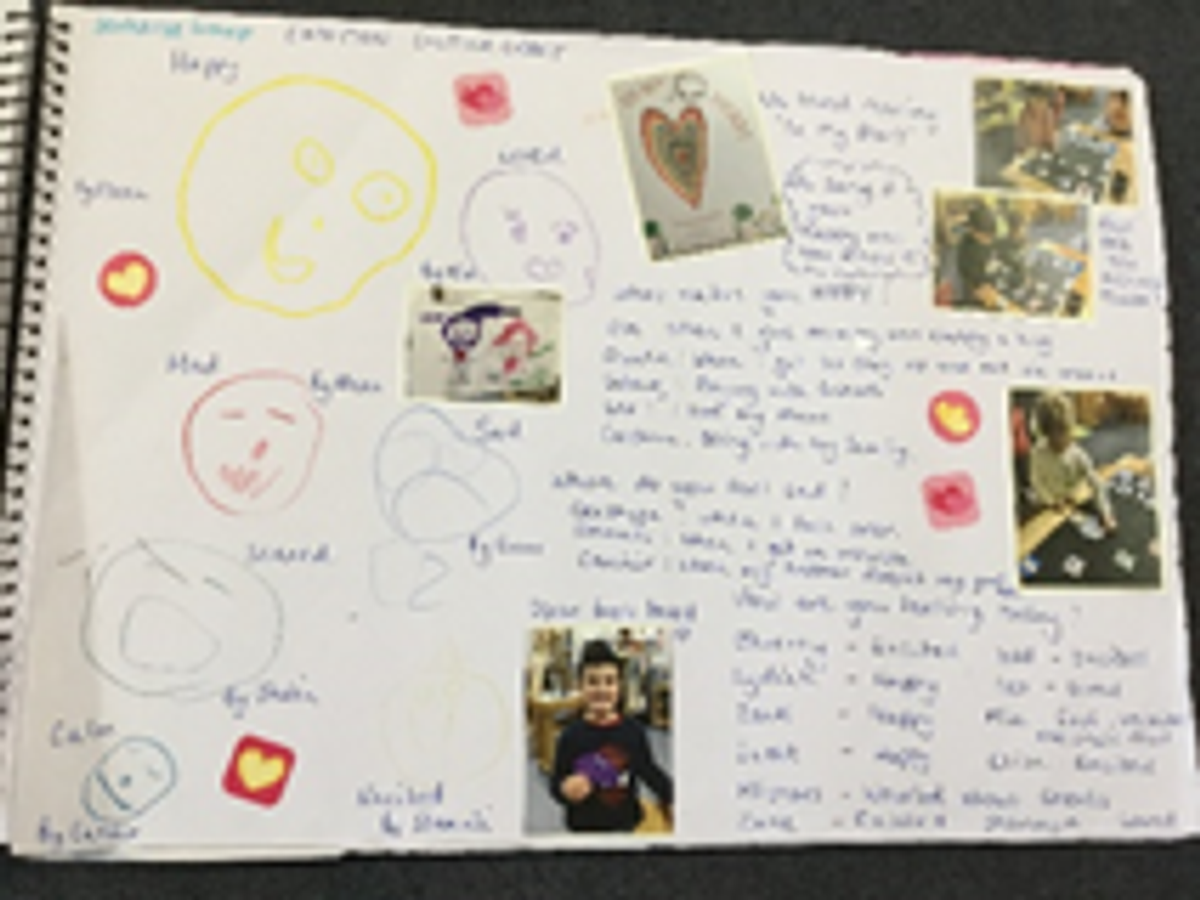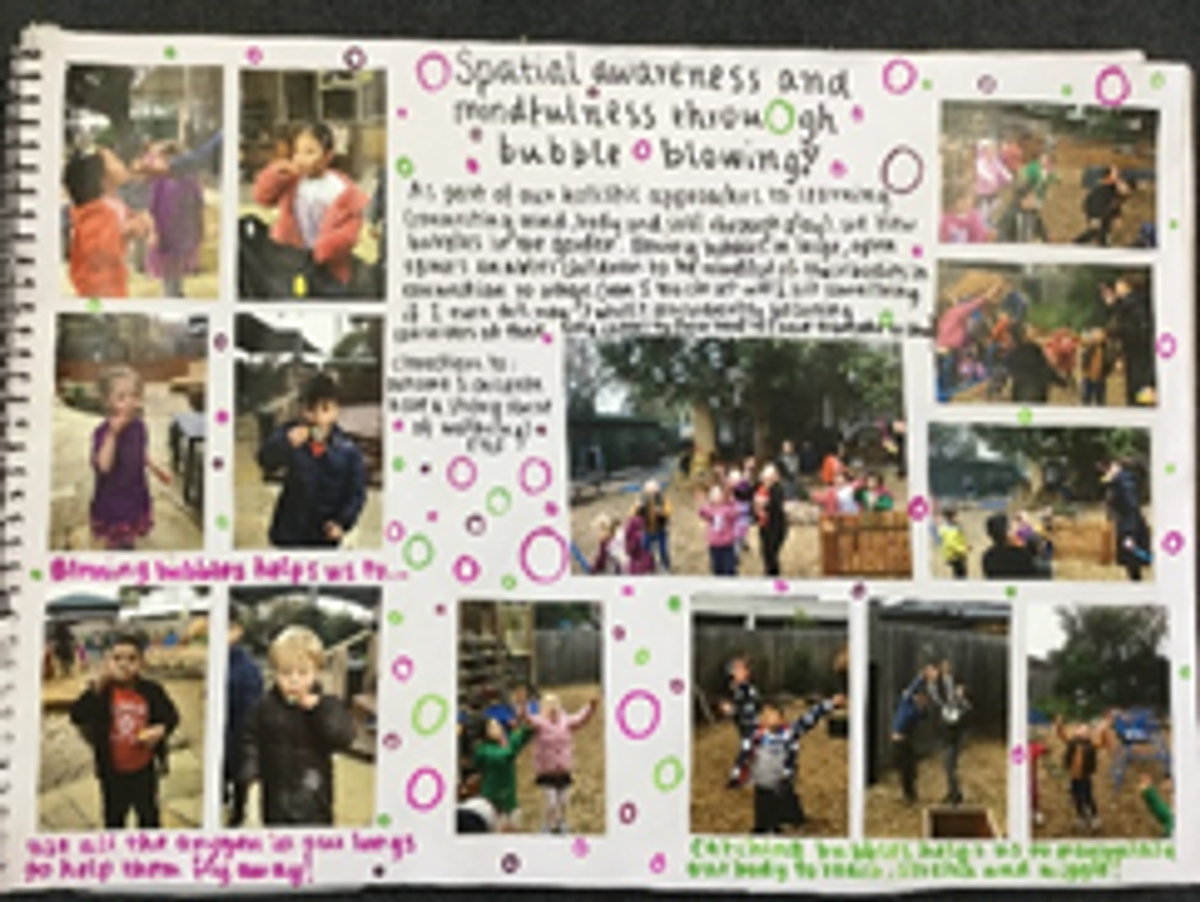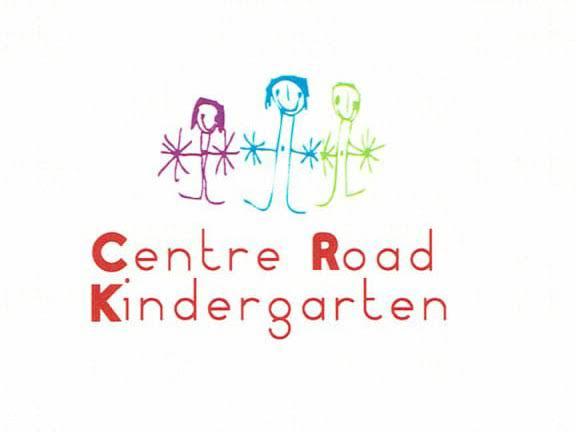GEKA Centre Road

We are embracing The Resilience Project at GEKA Centre Road Kindergarten
The Resilience Project has been a fantastic addition to our days at GEKA Centre Road! The children have grasped TRP with great enthusiasm. They have been developing a greater understanding about their feelings in a simplified, age-appropriate way. The children are developing resilience through emotional literacy, being mindful and expressing gratitude. Each week, our children can express how they are in conversations, play and art. In the GEM (gratitude, empathy and mindfulness) journal we capture photos, and the children contribute with drawings and their voice. The GEM journal can then be looked at by the children and they love discussing their learning and ways to tell us how they feel. Our connection with each child is strengthening as we learn more about how they are, and they gain the confidence to speak freely about their emotions. -Sally Maher, Early Childhood Educator
I have enjoyed seeing the children recognise their feelings and understanding that they can change throughout the day. Group discussions have helped the children’s awareness of gratitude, empathy and mindfulness. I have seen a change in the children as they have become more aware of what is around them. They are understanding how to express their emotions and respond with care when their peers are in need, as well as recognising that we all have different thought and feelings.
-Remya Kumar, Early Childhood Educator
The Resilience Project has given us added tools to use within the kinder. We have always worked towards the children respecting each other and their surroundings. Talking about feelings has helped educators to build stronger relationships with the children, increased tolerance and acceptance of others, promoted good mental health and social harmony.
It helps to increase their ability to remain resilient when learning feels more challenging.
Having mindfulness practice embedded in the curriculum is a positive way to encourage social and emotional learning in the program. It also increases awareness and understanding of one's feelings and emotions. As an outcome, children become more engaged and empowered to learn. Emotional literacy has assisted the children to develop their vocabulary and the concepts for them to recognize and identify their own emotions and their friends. -Jacqui Christofidis, Early Childhood Educator
Helping children (and parents!) express their feelings is so important in providing a solid foundation to increase emotional resilience. It is wonderful to see the resilience project helping to provide a guide for parents to incorporate this into their routine. We have found reflections on what we have been grateful for, as well as what we are looking forward to, valuable particularly given the ongoing lockdowns. It helps us connected as a family with activities that we can do together as well as really getting to know our kids in the moment without thinking about what job/ task is next. One thing we realised was that we often neglected parent time, so this has been a good reminder that we also need to have some downtime as adults. -Emily Wall, Parent of Lachlan
EMOTIONAL LITERACY & REGULATION
In Term One, the Seastars began to learn about emotional literacy, learning the Auslan signs for different emotions, and using our Emotions Sign-in Board daily.
When children practice emotional literacy, they learn to self-calm and self-regulate, develop resiliency, express their feelings, develop positive relationships with others, and develop social skills such as empathy, sharing and turn-taking.
The Resilience Project has continued to develop the children’s skills across the kinder.
-Jacquie Chilvers, Early Childhood Teacher
Over the past several weeks it has been wonderful to see each child learn the confidence to understand and articulate how their body feels and how their emotions can change across the day. To start off the day, every child connects their name/photo with one of the seven emotions we have learnt about in The Resilience Project. This has opened conversations with both educators and families about what might be on their mind, and begin discussions about why this emotion is important to them.
Three wonderful examples that stand out to me are:
- Ella placed her photo in the middle of the board between feelings. I asked how she felt. Ella replied “I feel two things, sad and excited. Sad because I will miss mum and excited because I love playing at kinder with my friends”
- Another day I felt success as an educator in supporting each child’s well-being when a child came up to me in the middle of the day and said, “this morning I was feeling happy but now I feel sad and frustrated because my friend is not sharing. I want to stamp my feet! Can you help me?”. Together we looked at the emotions board and moved her photo to her new feeling and discussed what we could do to help her. Mia decided to take a few deep breaths and talk to her friends.
- Mason saw a friend upset, he then went and drew the friend a picture of the two of them playing together. “This is for you” Mason said to his peer. -Rochelle Ancora, Early Childhood Educator
MINDFULNESS
At GEKA Centre Rd Kindergarten we have been practicing gratitude, modelling kind and caring behaviour, in addition to using mindfulness as a calming tool since the beginning of the year. For us, The Resilience Project has been an extension of what we already have been doing. As we all believe so strongly in teaching children how to identify, manage and express their emotions, we have welcomed a program which the parents can also encourage at home. Teaching mindfulness is a tricky concept and while it may be hard to grasp, calming our bodies is an integral part of our program, with the children growing in their ability to just stop and calm their minds and bodies. Practicing mindfulness activates and strengthens emotional intelligence, curiosity, concentration, compassion, and cognitive flexibility. Everyone can benefit from learning such a skill.
-Elspeth Marson-Thomas, Early Childhood Teacher
GRATITUDE
What has been so noticeable in our Little Fish group is the children’s concerted efforts to become aware of their surroundings, the privileges they have in their life and their capacity to be mindful about the agency they have both in the service and the local community. The children are starting to connect concepts such as being grateful for having extra food when they are hungry, being thankful for friends sharing resources and materials and more evident recently, the gratitude surrounding freedoms outside of lockdowns during the pandemic. Children have become aware to the difference between what they can access now (such as the park, Zoom meetings, and still attending kindergarten) and what they would like to do in the future - as one child said ‘’when the Virus is over and we are not in lockdowns I would like to go to the beach and the zoo”. The children are attuned to the present moment and are consolidating skills such as empathy and consideration for others as a direct result of the experiences implemented and the shared, sustained conversations embedded into the program and curriculum.
-Racquel Luntz, Early Childhood Educator





